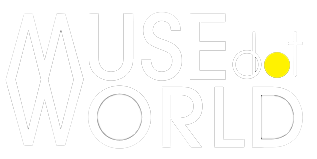Interview with Nikhil Ghadge from the United States

Interview with Priyanka Neelakrishnan from the United States
July 25, 2024
Interview with Lola Yiting Zhang | Concept Artist with Sony Interactive Entertainment
July 29, 2024As a seasoned Software Architect with extensive experience at Okta, a leading identity management company, I've played a pivotal role in enhancing Okta's Universal Directory through the implementation of microservices architecture.
Throughout my career, I've developed a proven track record of analyzing system requirements, formulating software architecture specifications, and providing invaluable technical guidance to teams working on complex projects.
My background in object-oriented programming and database technologies has equipped me with excellent problem-solving and communication skills, which I've consistently demonstrated in my work. At Okta, I've made significant contributions to the Universal Directory, managing vast amounts of user and group profile data and seamlessly transitioning existing profiles into separate microservices and databases, thereby optimizing system performance.
Prior to assuming the role of Software Architect, I served as a Principal Software Engineer and Team Lead at Okta. In this capacity, I actively participated in the design process from conception to implementation, mentored junior engineers, and developed innovative solutions for challenging technical problems.
My academic journey includes earning a Master's degree in Computer Science from Arizona State University, where I also worked as a Research Assistant, proposing enhancements to code overlay performance in scratch pad memory systems. Additionally, I hold a Bachelor's degree in Engineering from Shah & Anchor Kutchhi Engineering College, Mumbai University.
In my current role at Okta, I serve as the Software Architect - Team Lead. This position entails a range of crucial responsibilities, including analyzing system requirements and crafting software architecture specifications tailored to meet our customers' diverse needs. Throughout the development cycle, I'm tasked with addressing issues pertaining to software design, architecture, and implementation, ensuring smooth progress and high-quality outcomes.
A significant aspect of my role involves the upkeep and expansion of Okta's Universal Directory, a pivotal component managing extensive user and group profile data. I oversee the migration of existing profiles into separate microservices and databases, steering the transition away from a monolithic architecture towards a more agile and scalable framework.
In addition to hands-on tasks, I provide valuable technical guidance to my team members, aiding them in proposing and implementing optimized designs for complex projects. Timely resolution of production issues is also part of my mandate to uphold service level agreements and ensure uninterrupted operation.
In essence, as a Software Architect and Team Lead, I bear the responsibility for defining the technical direction, shaping the architecture, and overseeing the implementation of Okta's core Universal Directory product. Leading the team entrusted with this critical identity management system, I strive to drive innovation and maintain the highest standards of performance and reliability.
Okta is a leading independent identity provider for the modern cloud enterprise. Founded in 2009 and headquartered in San Francisco, Okta pioneered the identity-as-a-service market.
Some key facts about Okta:
It provides cloud software that helps companies manage and secure user authentication into applications, and for developers to build identity controls into apps, websites and devices.
Okta's Identity Cloud platform provides single sign-on, multi-factor authentication, lifecycle management, API access management and advanced server access capabilities. Major products include Universal Directory, Single Sign-On, Adaptive Multi-Factor Authentication, API Access Management.
It serves over 15,000 organizations including major companies like FedEx, Nordstrom, Slack, Teach for America. Okta has over 2,500 employees across offices in Seattle, Toronto, London, Sydney among others. It went public in 2017 and is listed on the Nasdaq with over $1 billion in annual revenue as of 2022. The company is led by co-founders Todd McKinnon (CEO) and Frederic Kerrest (COO).
So in summary, Okta is a pioneering and leading cloud identity management provider focused on securely connecting employees, partners and customers to the right technologies and applications from anywhere.
Okta specializes in the identity and access management (IAM) industry, which is a critical part of the broader cybersecurity market.
The main characteristics of the IAM industry are:
Identity Management: Providing solutions to manage digital identities of users (employees, customers, partners etc.) throughout their lifecycle - creation, maintenance, and deactivation. This includes features like single sign-on, multi-factor authentication, user provisioning and directory services.
Access management: Controlling what resources and applications each user can access based on their role and security privileges within an organization. This ensures only authorized personnel can access sensitive systems/data.
Cloud delivery: With the shift to cloud computing, IAM solutions are increasingly delivered as cloud-based services rather than on-premises software, allowing easier integration across cloud apps.
Zero trust security: IAM enables the "zero trust" security model of continuously verifying users and devices before granting access, rather than traditional perimeter-based security.
Regulatory compliance: IAM plays a crucial role in helping organizations meet data privacy and security compliance regulations like GDPR, HIPAA, SOX etc.
The key drivers for IAM adoption include the rise of cloud apps, mobile devices, remote workforce, digital transformation initiatives, and increased cyber threats targeting identities.
Okta is a pioneering independent provider solely focused on this IAM market versus suite vendors. Its cloud identity platform and administration tools help secure enterprise access across any app, vendor, or device.
Winning a TITAN Business Award is an esteemed acknowledgment that underscores exceptional leadership, vision, and achievement within the business realm.
Firstly, the TITAN Business Awards are bestowed annually by an organization dedicated to recognizing the finest businesses and entrepreneurs across diverse industries. Securing this accolade indicates that a company or individual has been singled out as a premier leader and trailblazer within their specific sector.
Moreover, these awards are a testament to excellence in business. They honor companies and executives who have showcased brilliance through remarkable business strategies, growth, innovation, leadership, vision, market dominance, and overall business triumphs.
It's worth noting that winners are selected by eminent business leaders and seasoned entrepreneurs, signifying that the awardee's achievements have been validated by respected peers within the business community. Additionally, earning a TITAN award elevates the brand credibility and reputation of the recipient, positioning them as a respected authority and role model within their industry.
For companies that receive this prestigious honor, it serves as a source of immense pride for employees, fostering elevated morale and a profound sense of belonging to an elite, award-winning organization.
Overall, this award serves as a hallmark of excellence, distinguishing companies and leaders who have made remarkable impacts and contributions through their visionary leadership, business acumen, and pioneering endeavors in their respective fields.
For a successful team:
- Strong technical skills and ability to develop innovative software solutions.
- Effective collaboration, with senior members providing guidance and mentorship.
- Owning end-to-end responsibility from design through implementation.
- Proactively identifying and resolving issues/bottlenecks.
- Delivering measurable improvements in performance, scalability and customer experience.
For a successful organization, the indicators are:
- Having a robust architecture that can handle large-scale workloads securely.
- Continually improving core products through new technologies like microservices.
- Prioritizing customer needs to develop solutions that meet their requirements.
- Ability to execute complex cross-team projects and transitions successfully.
- Achieving significant cost savings and revenue growth through optimization efforts.
Overall, a successful business is depicted as one that is technically excellent, customer-focused, architecturally sound, continuously innovating, and able to drive operational efficiency while growing market share and profits.
Technical Excellence - The resume highlights Nikhil's expertise in developing innovative software solutions, implementing microservices architectures, and optimizing performance - suggesting Okta has strong engineering capabilities as a foundation.
Product Leadership - Okta appears to have a pioneering and comprehensive identity management platform (Universal Directory) that can handle large volumes of user data securely, likely driving adoption.
Customer-Centric Approach - Nikhil's role involves analyzing customer needs and developing architecture to meet those needs, indicating customer focus.
Ability to Execute - Successful delivery of complex projects like transitioning to microservices while improving performance demonstrates strong execution capabilities.
Continual Innovation - The resume mentions implementing new functionalities and technologies like microservices, reflecting innovative prowess.
In summary technical leadership, customer-centricity, consistent innovation, and strong execution have been key enablers for Okta's success in establishing itself as a major IAM industry player over the years.
Some of IAM trends I am excited about:
Zero Trust Security Model
The move towards a zero trust security approach, where strict identity verification is required for every user and device to access resources, is a major paradigm shift in IAM. With Okta being a leading IAM provider, implementing robust zero trust capabilities is likely an area of focus.
AI/ML for Identity Intelligence
Leveraging AI/machine learning for advanced identity analytics, user behavior modeling, anomaly detection and automating identity lifecycle processes could be an exciting trend my team is looking at.
Decentralized Identity Management
The concept of decentralized, self-sovereign digital identities enabled by blockchain and distributed ledger technologies is an emerging area that could streamline IAM across organizations.
Cloud Identity Convergence
As more enterprises adopt multi-cloud strategies, seamlessly integrating and federating identities across multiple cloud environments is becoming crucial for IAM solutions.
Passwordless Authentication
The move towards passwordless authentication using biometrics, FIDO2, mobile authenticators etc. to enhance security and user experience is an IAM trend gaining traction.
Microservices and DevOps for IAM
Given my work on microservices architectures, implementing IAM functions as agile microservices using DevOps principles could be an area they are excited to further build on.
Here is how I foresee the IAM industry evolving over the next 5-10 years:
Increased Cloud Adoption
As more enterprises move applications and infrastructure to the cloud, IAM solutions will need to be cloud-native and capable of seamlessly managing identities across hybrid/multi-cloud environments.
AI/ML Powered Identity Analytics
AI and machine learning capabilities will become central to IAM platforms for advanced identity analytics, user behavior modeling, risk scoring, automated provisioning and deprovisioning.
Decentralized Identity Management
There will likely be more adoption of decentralized identity models and self-sovereign identity using blockchain/distributed ledgers to enable secure identity portability across organizations.
Expansion of Passwordless Authentication
Passwordless authentication using biometrics, mobile authenticators, FIDO standards etc. will increasingly replace traditional passwords for better security and user experience.
IAM for Internet of Things (IoT)
With IoT devices proliferating, IAM solutions will need to evolve to manage machine identities and authenticate IoT device access at scale.
Tighter Integration with Cyber Security
IAM will become more tightly coupled with broader cybersecurity functions like threat intelligence, SOAR, DLP as identity remains a critical attack vector.
Privacy and Compliance Demands
Increasing data privacy regulations will place more stringent compliance and consent management requirements on IAM solutions.
Microservices and DevOps for IAM
Following my work, more IAM vendors may decouple capabilities into microservices for agility and adopt DevOps practices.
Industry-Specific IAM Offerings
We may see IAM solutions tailored to vertical-specific needs like finance, healthcare, manufacturing to meet specialized compliance/security needs.
So in summary, the IAM space will need to evolve to be cloud-native, leverage AI/ML, adopt decentralized models, prioritize UX via passwordless auth and cater to IoT, privacy and vertical-specific demands over the next 5-10 years.
Some of the factors that have contributed to my success:
Continuous Learning: The resume shows my progression from Software Engineer to Principal Engineer to Software Architect, suggesting a commitment to continuously upskilling and taking on greater challenges.
Technical Depth: My work on complex projects like implementing microservices architectures, optimizing performance, and enhancing core products demonstrates deep technical abilities.
Problem-Solving Skills: Examples like identifying and resolving race conditions, improving data import speeds etc. point towards strong analytical and problem-solving mindset.
Ownership Mindset: Handling end-to-end responsibilities from design to implementation across products indicates an ownership approach.
Leadership and Mentoring: My roles involved providing guidance to teams and mentoring junior engineers, highlighting leadership qualities.
Nikhil Ghadge
Nikhil Ghadge is a seasoned Software Architect with extensive experience at Okta, a leading identity management company. He has played a pivotal role in enhancing Okta's Universal Directory by implementing a microservices architecture.
Read more about this interview with Vatesh Pasrija from the United States, the Platinum Winner of the 2024 TITAN Business Awards.


